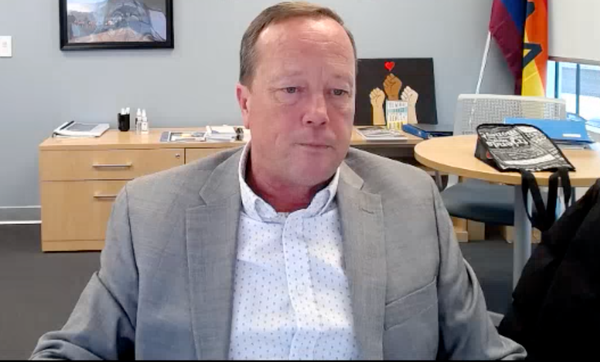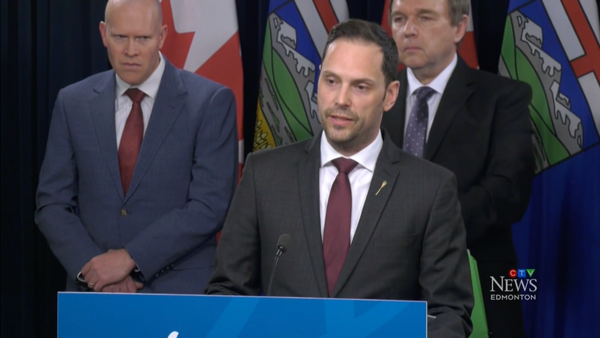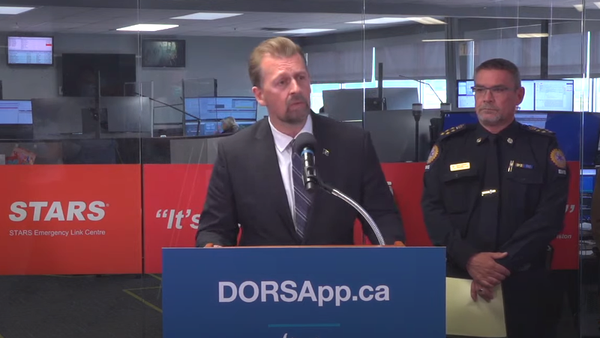Marshall Smith allegations should prompt full procurement investigation
The Globe & Mail is reporting top-level allegations that Marshall Smith, former chief of staff to the Alberta premier, interfered in AHS procurement. If a forensic investigation proceeds, it must extend to the Ministry of Mental Health and Addiction, which Smith oversaw from 2019 to 2022.
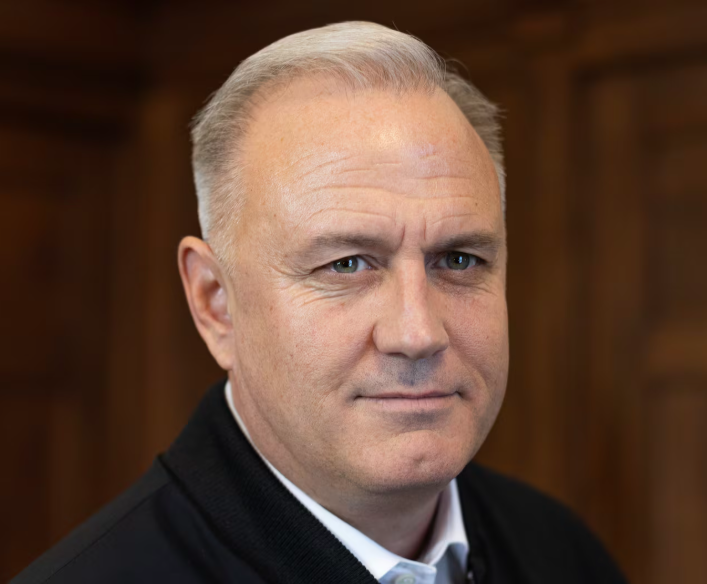
UPDATE – July 2, 2025: Alberta's Auditor General has announced he is auditing Recovery Alberta in conjunction with allegations of corrupt health services procurement (so-called "CorruptCare" scandal). Share relevant information with the Auditor General: https://www.oag.ab.ca/about/contact/locations/.
Former Alberta Health Services chief executive Athana Mentzelopoulos was pressured by members of the Alberta government to approve contracts for privatized medical services, according to a bombshell investigation by The Globe and Mail's Carrie Tait. Two days before the chief executive attempted to bring her concerns to the Auditor General, she was fired by the government. Three weeks later, the entire AHS board was dismissed.
According to the letter obtained by The Globe, the AHS board had recommended Ms. Mentzelopoulos bring her findings to the RCMP.
The government actor named in these dealings is the Alberta premier's former chief of staff, Marshall Smith, whose role in procurement for the Ministry of Mental Health and Addiction has long been a focus at Drug Data Decoded.
Marshall Smith was chief of staff in the ministry from 2019 to 2022, when he was named as incoming Premier Danielle Smith's chief of staff. He resigned his position last October.
While the allegations around Alberta Health Services implicate hundreds of millions of dollars in procurement spending, Mental Health and Addiction expenditures should be similarly examined in light of the new allegations.
Questions raised around Ministry of Mental Health and Addiction contracts are circumstantial and based on the new allegations concerning Marshall Smith. No new evidence has emerged that directly links Smith to their procurement. However, the following discussion will be useful if the Auditor General or any other body seeks to examine procurement by the Ministry.

Digital Overdose Response System (DORS)
The overdose app came as a surprise in 2020 given that a University of Calgary team had fully conceptualized a similar system that was awaiting the green light from the government. Instead, that plan was cancelled and a sole-source contract was given to Aware 360, an app company normally supporting confined space entry in the oilpatch, with physician Monty Ghosh supporting its development.
For years, the Ministry refused to provide transparency on the app's use rates and reversed overdoses, but Global finally reported confusing government claims of overdose responses triggered by the app in June 2023. Among them, the government claimed there had been "86 situations that escalated to STARS and 18 situations that resulted in EMS dispatch." What they meant by "escalated" was not clarified.
The app had collected the data of 1,400 registered users by that time.
My Recovery Plan
Similar to DORS, the My Recovery Plan app presents a devil's bargain for people seeking to protect themselves from drug poisoning. The app, also launched through nearly $2 million in sole-source contracts, collects personal health information that is privately stored by the BC-based app owner, Last Door Recovery Society. Its current contract, obtained by Drug Data Decoded, is set with Alberta Health Services and was extended in 2024.
Conditions for informed consent do not appear to be met by the app, which is being pushed on recovery facilities by the ministry, using threats to future funding.
The app is also targeted for implementation in shelters, supervised consumption sites and prisons, and it was refused by Indigenous service providers because of concerns around culturally appropriate content and data sovereignty.
Calgary Recovery Community
Although the Alberta government is keeping a lid on the contract recipient, evidence strongly suggests that Last Door Recovery Society has landed another multimillion-dollar contract, this time for the Calgary Recovery Community. While this was not technically a sole-source deal, competitors for the contract were hand-picked and then given just two weeks to submit a complete application. Like the Lakeview Recovery Community (below), the government has guarded the recipient's identity for nearly two years.
Alberta Recovery Conference
A gathering space for most of the entities now holding Alberta government contracts, the Recovery Capital Conferences are run by Last Door Recovery Society. The Alberta government and Calgary Homeless Foundation are perennial sponsors of the conference, while Alberta Health Services sponsored the event in 2023.

A group of protesters expressed concerns about the procurement practices the conferences appear to help underpin in February 2023 (including this author).
Lakeview Recovery Community
Similar to the Calgary Recovery Community, the contract for the Lakeview Recovery Community in Gunn was competitive insofar as it underwent a one-month application period open only to a limited number of invited service providers. It was then awarded to ROSC Solutions Group Inc., a company run by Carson McPherson, who worked alongside Marshall Smith in British Columbia.
This contract was especially lucrative, because in addition to the recovery community, ROSC Solutions Group was granted the Recovery Training Institute of Alberta and the first contracts for Therapeutic Living Units, recovery facilities built into provincial prisons. The contract details were kept hidden for nearly two years, until a formal ribbon-cutting by the government in August 2024.
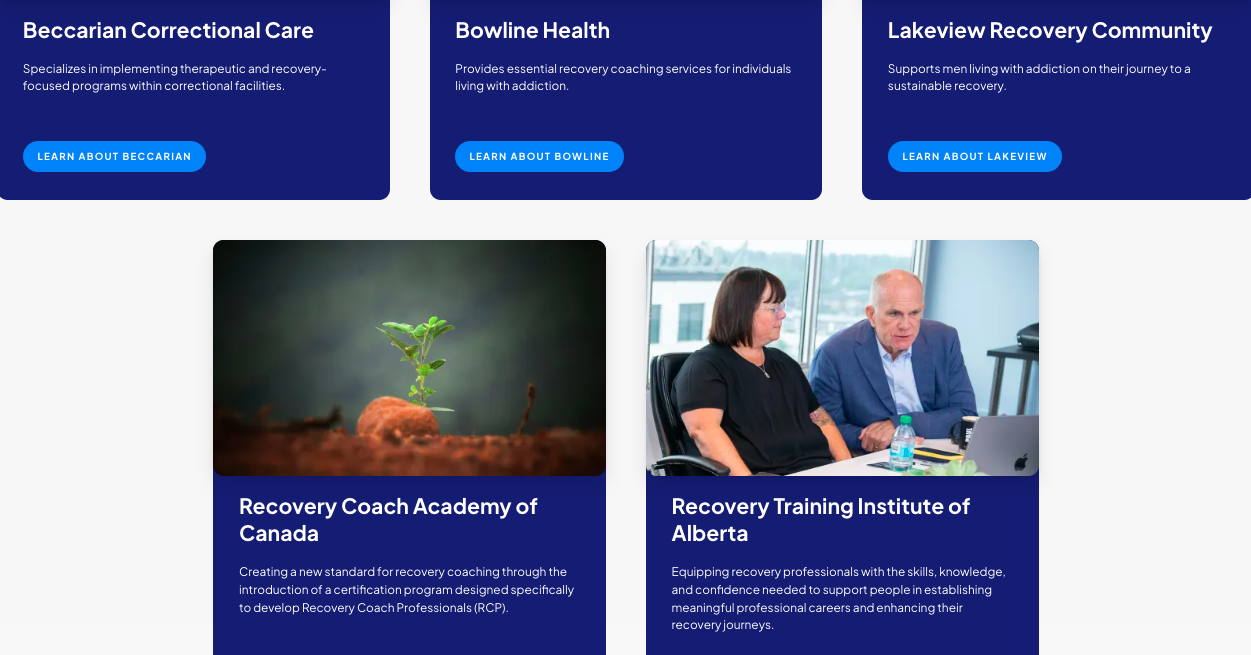
Navigation Centres
ROSC Solutions Group runs five subsidiary companies. Among them is Bowline Health, the operator of the "navigation centres" launched in early 2024 in Edmonton and Calgary. Contract details are not public, but the Ministry's 2024 capital plan allocated $10 million for "Compassionate Intervention intake centres," which could be alternative wording for the navigation centres. (The Compassionate Intervention Act is the government's incoming forced abstinence or involuntary treatment legislation.)
The stated intention of the centres is to provide access points for unhoused people to find services and get onto wait lists for housing. However, the centres have been repeatedly leveraged as justification for clearing encampments.
Encampment clearing, as Drug Data Decoded uncovered in July 2024, is sometimes done to meet the goals of commercial developers.
Another ROSC Solutions Group subsidiary is the Recovery Coach Academy of Canada, whose contracts and activities have not been examined by media except for a mention in David Climenhaga's Alberta Politics.
Suboxone and Sublocade
Sold by Indivior, a pharmaceutical company that in 2020 pled guilty to a felony charge and was fined $600 million by the US Department of Justice for false safety claims about its opioid products, Suboxone and Sublocade have been aggressively driven into the Alberta recovery landscape by the government. Suboxone is the opioid buprenorphine combined with naloxone, typically taken orally, while Sublocade is a slow-release buprenorphine gel injected under the skin.
While many people find these drugs help them curb their exposure to the toxic unregulated supply, questions have been raised about coercion of people into using them. For example, police power was expanded under the United Conservatives to "offer" access to these drugs while people are held in custody. Meanwhile, paramedics in Ontario can initiate Suboxone for patients immediately following an overdose – the foundation of the so-called "Timmins model."
While dispensing of these brand-name drugs has skyrocketed in Alberta, generic methadone and oral morphine have stagnated despite their proven efficacy.
Deregulation of addiction counsellors
Counselling therapists spent decades building the foundation of a regulatory college, but in a coordinated effort that maintained high profit margins for private recovery operators, the Alberta government suddenly cancelled the college in 2021. The counselling therapists organizing the college complained of lobbying by the Canadian Addiction Counsellors Certification Foundation, which sells certifications to counsellors but does not regulate them. That organization was led by Marshall Smith before he was hired by the Alberta government in 2019.
In 2024, the body of counselling therapists was folded into the College of Alberta Psychologists with no formal regulatory oversight, and the 2018 legislation to create the college of counselling therapists was scrapped from the Mental Health Services Protection Act.
So despite many counselling therapists achieving post-graduate training and competency, quackery held a central position in addiction treatment.
Any investigation of Alberta Health Services procurement will not be complete without also examining the largest contracts issued through the Ministry of Mental Health and Addiction. An easy target because of the marginalized population it ostensibly serves, that ministry may have served as a proving ground for unethical practices later used in the broader health care system.
Readers are encouraged to bring this to the attention of opposition MLAs and NDP leader Naheed Nenshi, as well as governance bodies including the Auditor General, to ensure greater protection for people who use drugs while these broader health privatization schemes are unravelled.
Share information relevant to the ongoing Auditor General audit of Recovery Alberta spending: https://www.oag.ab.ca/about/contact/locations/.
Drug Data Decoded provides analysis on topics concerning the war on drugs using news sources, publicly available data sets and freedom of information submissions, from which the author draws reasonable opinions. The author is not a journalist.



